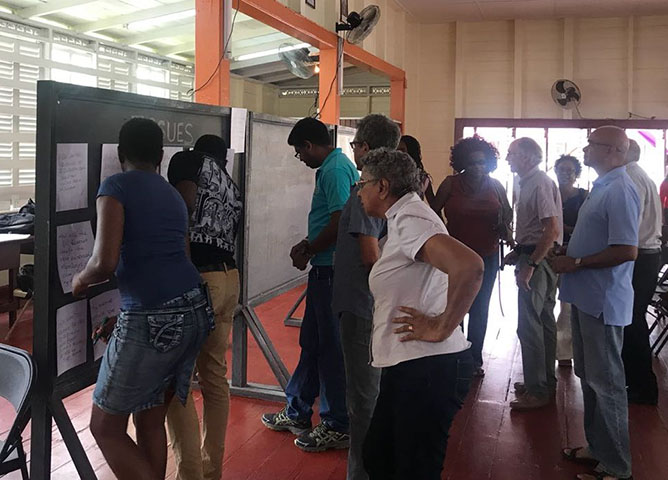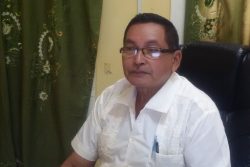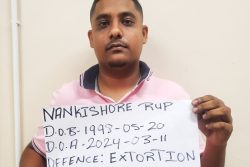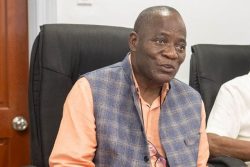Policy Forum Guyana (PFG), a partner in the programme, Shared Resources Joint Solutions (SRJS) recently launched a series of meetings on the use of the expected oil windfall and heard that infrastructural development and environmental protection should be key funding priorities.
The PFG stated in a recent press release that the aim of the programme is to progressively generate a broad-based national consensus on the priority issues to which oil and gas revenues should be applied. The forum was held at the Guyana Nurses Association on Alexander Street.
The group took part in multiple discussions utilising what is known as ‘Open Space’ methods. The agenda of issues was determined initially by participants’ suggestions, which were then organised into three rounds of discussions. At the end of the discussion rounds, in which participants were encouraged to move about at will in a ‘marketplace of ideas’, all participants then identified what they considered to be the three major priorities emerging from the discussions.
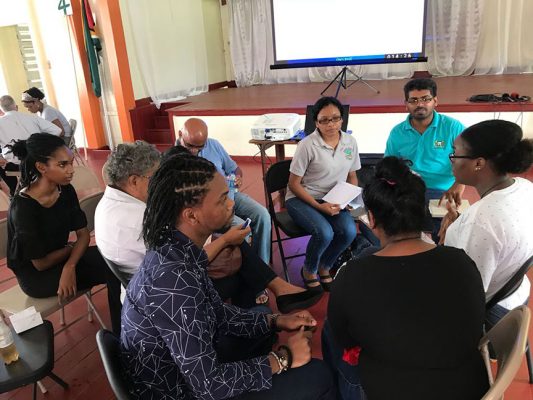
The most popular issue was ‘infrastructural development’, followed by ‘protection of nature’ and ‘a better tertiary system of education’. Also discussed was, ‘revamping the political system’, ‘better wages and salaries’, ‘a rapid public transportation system’ and ‘improving the situation of people with disabilities and vulnerable sectors’. ‘Encouraging population shifts off the coast’ and ‘free Wi-Fi access for the nation’ did not attract any votes.
Once a consensus has been established, the second phase of the project in 2019 would be to construct scientific, strategic financial, social and environmental assessments of the feasibility of the identified priorities.
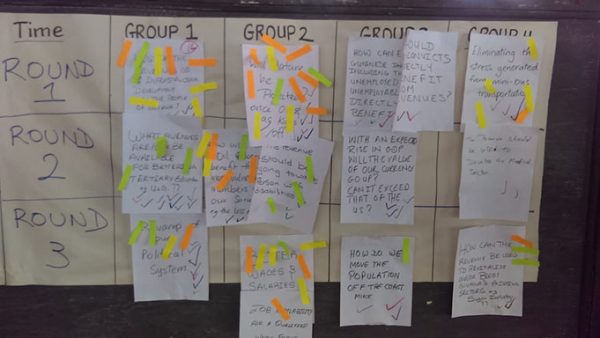
PFG Coordinator, Benita Davis, was quoted as saying, “The event was a valuable learning opportunity for many of the volunteers, who were experiencing the Open Space technique for the first time. Policy Forum can now go forward to implement other events of this nature more confidently.” She further stated, “I really believe this is an excellent way to engage all citizens in discussion of a complex issue like oil and gas.”
The event saw the participation of a wide cross-section of civic individuals and organizations including, UG Biology Club, a Lusignan-based contingent from the East Coast Clean-Up Committees, Eco-trust Society volunteers, the Catholic Church, represented by Bishop Francis Alleyne, representatives from the Georgetown Stabroek and Bel Air Leo Clubs, RISE Guyana, youth and student bodies, two disability organisations, as well as several other non-governmental organisations.
The meeting was the first in a series of five to be conducted across the coastal regions in New Amsterdam, Anna Regina, Linden and Corriverton in the coming months.
